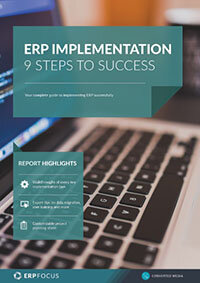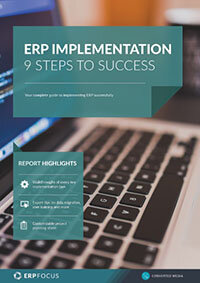3 Reasons Why Lean ERP Should be Your New Year's Resolution
ERP, or enterprise resources planning, is an integrated collection of applications designed to provide a real-time view or model of the whole business.
Lean is a business model designed to remove waste from a business. It began with Toyota manufacturing and is usually seen as a tool capable of improving efficiency in any kind of business.
Are these models compatible? There are some who look on ERP as the anti-lean model, pushing more and more production whether needed or not. But Lean ERP is no contradiction in terms. It can become a powerful tool to reduce waste, improve efficiency and streamline communications channels.
Lean ERP Improves Communication Channels
ERP is first of all a communication tool. It provides a common language that all in an organization can use. For example, job, work order, and production order all describe a vehicle to manage production and record the results of that production. People within any business come from a variety of backgrounds and, if all adopt the terms used in their particular ERP system, many language differentiations can be avoided. Lean ERP provides common communications: a sales order is booked, or it is not is one example. Many times there is a rush to provide for an expected order forgetting that peoples’ time, equipment, resources and materials might already be committed to other customer orders. If that order is important, why not enter the order and reschedule all the orders based on an agreed-upon priority?
Lean ERP Reduces Over-Production Waste
Lean ERP can eliminate wastes in transportation, inventory, motion, waiting, over production, over processing, and defects. All of these add cost without adding value and obviously should be avoided. But it might not be so obvious to all. For years we looked for efficiency in reducing the unit cost of a product. By itself, manufacturing efficiency is not a bad goal. We can see today that the costs of overproduction and storing the efficiently-produced products might be greater than the cost of producing them more in line with actual demand.
Lean ERP Is Built upon More Efficient Rules
We used our ERP system to produce “efficiently” and our ERP signaled to purchase materials and schedule equipment to meet that goal. ERP systems are not smart though. They only follow the rules we set to suggest actions. Those rules are our own and we can easily change them to help develop a lean ERP system. We get rid of manufacturing lot sizes based on an economic quantity and use dynamic lot size based on actual orders. We can go further and set a maximum production lot quantity and allow other customers to flow through the factory so that wastes are eliminated or minimized.
Lean and ERP are both good business models and both must be understood to communicate well, get orders complete on time and avoid waste at the same time.
Free white paper

ERP Implementation: 9 steps to success
The 9 proven steps you should follow when implementing ERP

Related articles
-

3 New Year's Resolutions for Your Discrete Manufacturing ERP Project
Getting the best from your manufacturing ERP for the new year.
-

Secret KPI: Why Your ERP Implementation Team Matters More Than Software
Learn how Godlan ensures successful ERP implementation for manufacturers with proven strategies &...
-

ERP & Logistics: Optimizing the Supply Chain
Read about the steps you can take to optimize your supply chain through ERP software logistics ma...

